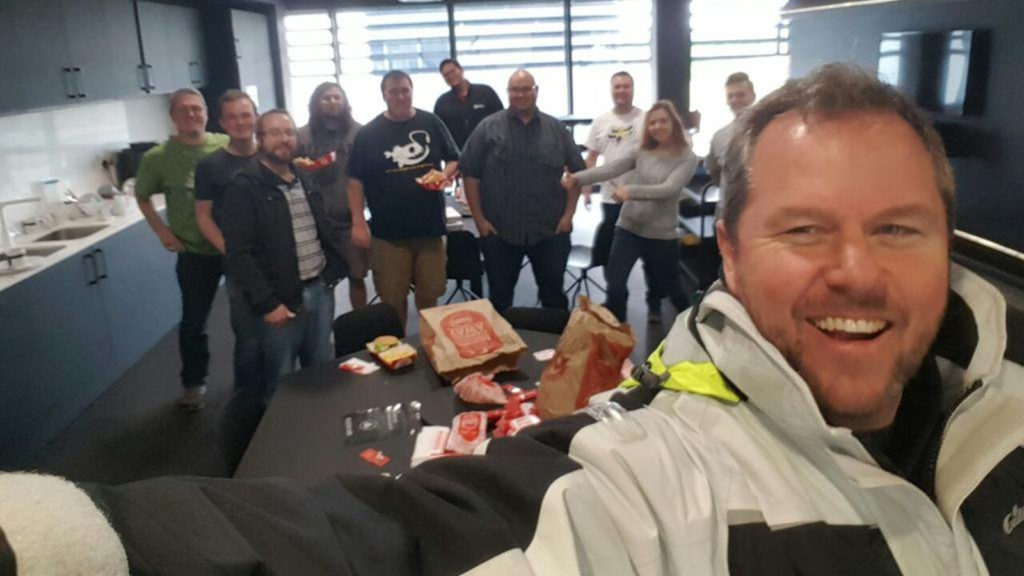With today’s discerning consumer demanding that their wearable tech be as functional as it is fashionable, the HUAWEI WATCH GT 5 Series steps boldly…
Vodacom acquires 51% of SA startup IoT.nxt [Updated]

UPDATE (9 August 2019): SA’s Competition Commission yesterday said it had approved the proposed merger whereby Vodacom intends to acquire IoT.nxt with conditions (see this story).
Vodacom has reached an agreement to acquire a majority stake in SA Internet of Things (IoT) startup IoT.nxt.
While neither Vodacom or IoT.nxt have disclosed the amount the telco paid to acquire a majority stake in the startup, it’s likely to be in the hundreds of millions of rands.
IoT.nxt startup has raised R120-million in two rounds in under four years, from Talent10, a Midrand-based asset management company which currently holds a 30% stake in the startup (though this was taken at a time when the startup was generating far lower revenue than it is now).
Vodacom said in a SENS announcement (opens as PDF) on Monday (13 May) that it had entered into an agreement to purchase a 51% equity interest in 10T Holdings and IoT.nxt BV. The transaction is subject to the approval of the Competition Commission, it said.
The telco said the deal will “significantly accelerate” Vodacom’s Internet of Things (IoT) strategy and transform its dedicated IoT business unit.
The Pretoria-based startup, which is led by co-founder and CEO Nico Steyn (pictured above) was founded in 2015, focuses on delivering innovative IoT software and hardware solutions.
IoT.nxt’s open platform network enables users of the platform to carry out rapid software development and integration.
Vodacom has entered into an agreement to purchase a 51% stake in IoT.nxt
In a statement yesterday Vodacom Group CEO Shameel Joosub said in addition to accelerating Vodacom’s IoT strategy, its investment in IoT.nxt brings a number of advantages to Vodacom’s existing IoT capability, including class-leading platform technology.
“For example, this will allow us to better orchestrate the information obtained from sensors and edge devices as well as enable us to further scale our IoT business across multiple verticals as we move up the value-chain.
“Vodacom will continue to seek strategic acquisition opportunities to drive ongoing investment in the IoT sector and to become the digitalisation partner of choice for enterprise clients and customers,” he said.
In the same statement Steyn said Vodacom’s acquisition would allow IoT.nxt to combine the power of the startup’s technology and the “considerable” strength of Vodacom’s capabilities, footprint and brand.
“Vodacom has critically evaluated many platforms globally, and has had operational success in projects with us, so this partnership resulted from these wins,” he said.
He said Vodacom’s investment would provide the startup with the chance to expand its business while building a “class-leading” product that will be sold globally, through multiple channels, including Vodacom’s competitors.
From five to 120 employees
In September last year the startup set up a US office in Dallas. This followed the opening of an office in The Hague, in the Netherlands in July 2017 and a partnership the startup secured with listed Dutch company ICT Group NV.
The startup is also partnering with tech giant Dell to develop an IoT-in-a-box solution using IoT.nxt’s Raptor Device.
In 2017 the startup reported that it had raised R100-million in funding from Talent10. The holding company also provided the initial funding for the establishment of IoT.nxt — in the form of R20-million, Steyn revealed in a podcast last month on Classic FM.
This, while he told Ventureburn by phone that Talent10 currently has a 30% stake in the business. Steyn however pointed out that Talent10’s investments were made at a “totally different point” in the business.
Steyn founded the company with Terje Moen and Bertus Jacobs, with whom he previously ran a software company called CCS Software that the three exited and sold to a JSE listed entity OCS Software in 2006. OCS Software was later acquired by BCX.
The three developed software for Vodacom that according to Steyn is still being used by the telco in their retail stores.
The startup has seen massive growth — at least if employee growth is anything to go by. Steyn said the company has grown to about 150 employees, after having started in late 2015 with just five people, adding about 40 jobs since the end of last year.
He expects the company to double its staff numbers by the end of this year, mostly through new local hires. Pretty impressive stuff.
‘Work has just begun’
About 70% of the startup’s revenue came from SA customers last year — from businesses based in 16 different verticals including the mining, banking, ports and telecommunication among others. The remainder came from US customers.
This year Steyn said he expects SA business to be split evenly with that of the US — as the startup has its sights set at growing total revenue five to eight times over last year’s sales figures.
While most founders might be content to take a week’s holiday on a tropical island like Mauritius at this point, for Steyn the work has “just begun”.
*Correction (21 October 2019): IoT.nxt opened an office in The Hague, in the Netherlands in July 2017 and not February last year as we had it in the initial version.
Editor’s note (15 May 2019): This story has been updated with further information provided by IoT.nxt CEO Nico Steyn in phone interview held subsequent to the publication of the initial article.

